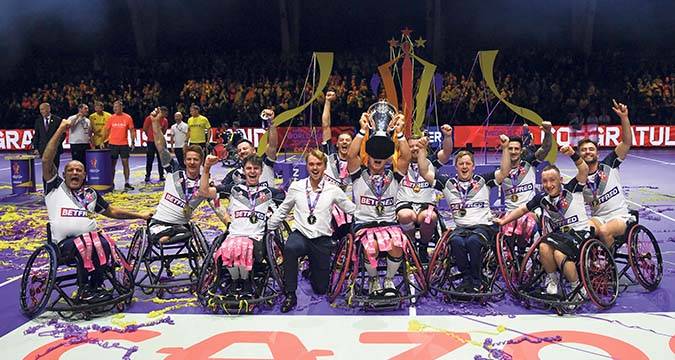 FUTURE TENSE
Stephen Ibbetson doesn't have far to look back to find an encounter that will live long in the memory and also influence the future of the game for years to come.
I HAVE been nagged at to write this for some time now by Rugby League World editor Lorraine Marsden, as she scraped the barrel of contributors to the magazine to keep this
FUTURE TENSE
Stephen Ibbetson doesn't have far to look back to find an encounter that will live long in the memory and also influence the future of the game for years to come.
I HAVE been nagged at to write this for some time now by Rugby League World editor Lorraine Marsden, as she scraped the barrel of contributors to the magazine to keep this Match of my Years: Wheelchair Rugby League World Cup Final 2021
 FUTURE TENSE
Stephen Ibbetson doesn't have far to look back to find an encounter that will live long in the memory and also influence the future of the game for years to come.
I HAVE been nagged at to write this for some time now by Rugby League World editor Lorraine Marsden, as she scraped the barrel of contributors to the magazine to keep this
FUTURE TENSE
Stephen Ibbetson doesn't have far to look back to find an encounter that will live long in the memory and also influence the future of the game for years to come.
I HAVE been nagged at to write this for some time now by Rugby League World editor Lorraine Marsden, as she scraped the barrel of contributors to the magazine to keep this 